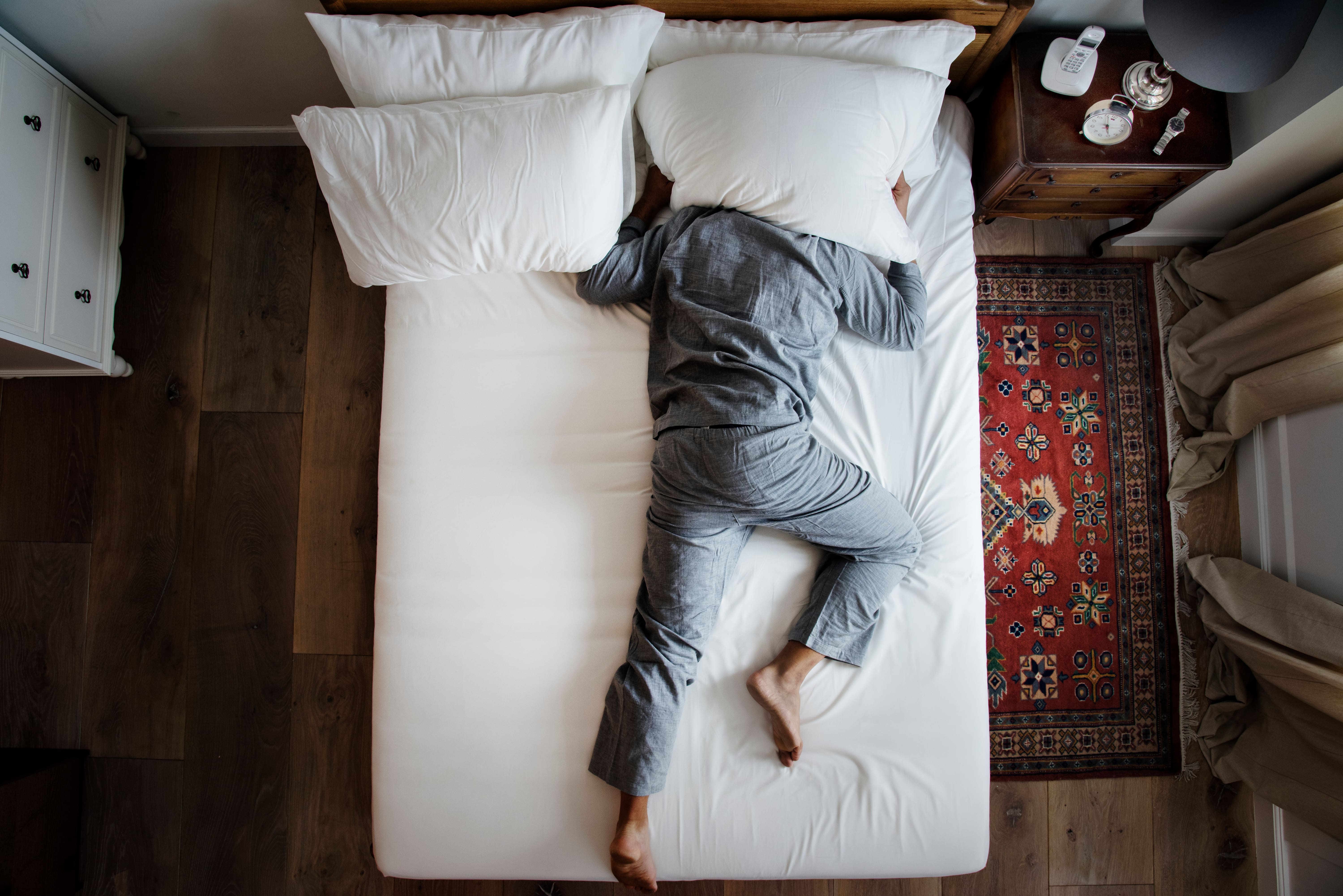Did you know that missing out on sleep can make your immune system weaker? Many of us know that stress can wear down our body’s defenses, but the impact of poor sleep is often overlooked. Just like stress, lack of sleep takes a real toll on your immune system. Think of sleep as your body’s “recharge” time, helping it build up the strength to fight off infections and keep you healthy. When you skimp on sleep, even for a few nights, your immune system loses some of its power to protect you. It’s not just about feeling rested — it’s about giving your body the chance to guard you against illness. This hidden link between sleep and immune health is something we don’t always consider, but it’s crucial to know if you want to stay strong and healthy.
Why Sleep Is Essential for Immune Function
Your immune system works around the clock, fighting off germs and keeping you healthy. But just like a phone battery, it needs to recharge — and that’s where sleep comes in. During sleep, your body goes into repair mode, fixing damaged cells and creating new ones to strengthen your defenses. This nightly rest is when immune cells get a boost, helping them to stay alert and ready to tackle any invaders.
Every night, as you drift off, your immune system kicks into action. It’s busy producing white blood cells, which are key to fighting off viruses and bacteria. These cells play a big role in protecting you from infections, and they’re only at their best when you’re well-rested. Quality sleep helps your body stay stocked with these powerful immune cells, giving you a better shot at staying healthy.
So, when you prioritize sleep, you’re giving your immune system the support it needs to do its job well. It’s a simple way to help your body stay strong and keep sickness at bay.
The Body’s Defense Mechanism During Sleep
While you’re asleep, your immune system is hard at work. Special immune cells, like T cells, step up their game, identifying and fighting off any potential threats in your body. These T cells act as guards, targeting and attaching to harmful cells, so they can be destroyed before they cause trouble. This process is strongest during sleep, when your body is relaxed and can focus on building its defenses.
At night, the immune system goes into repair mode, mending damaged cells and tackling harmful ones. This “night shift” helps keep your body ready to fend off infections and recover from any damage. A regular sleep schedule keeps your immune system even sharper, since it learns when to kick into action each night.
Getting enough rest each night strengthens your immune system, helping it stay prepared to protect your health.
The T Cell Factor: Sleep’s Key Contribution to Immunity
T cells play a powerful role in your immune system. These immune cells are like the body’s security guards, always on the lookout for any infected cells that could cause trouble. During sleep, T cells become especially active, giving your immune system a boost when it needs it most.
One of the main ways T cells do their job is through proteins called integrins, which act like “sticky” hooks. These integrins help T cells attach to infected cells, so they can get rid of them faster. When you get a good night’s sleep, it strengthens this process. Recent research shows that sleep actually increases T cell activity and the stickiness of integrins, making it easier for your immune system to fight off infections.
Supporting T cell function is just one reason quality sleep matters. Each night, as you rest, these cells work better, giving your immune system a stronger chance to keep you well.
The Role of Stress Hormones: How They Interfere with Immunity
Stress hormones, like cortisol, have a big effect on your immune system. When you’re stressed or sleep-deprived, your body releases more cortisol, which prepares you for action but slows down certain immune functions. Cortisol puts your body in “alert mode,” helpful in short bursts but not if it’s elevated all the time.
During the day, cortisol levels naturally stay higher to keep you awake and active. But at night, these levels drop, giving your immune system a chance to focus on repairing cells and fighting off any lurking infections. When you miss out on sleep, though, cortisol doesn’t get this break and remains high, making it harder for immune cells to do their job.
High stress hormone levels from poor sleep create a cycle where your immune system is left without the full strength it needs to defend against illness. Over time, this constant stress on your immune system can leave you more vulnerable to getting sick.
Comparing Sleep Deprivation with Chronic Stress on Immunity
Sleep deprivation and chronic stress can both put a lot of strain on the immune system. Both can lead to increased inflammation in the body, which wears down your defenses and leaves you more prone to illness. When your body is constantly in “stress mode,” it sends out inflammation signals, which over time can start harming healthy cells instead of protecting you.
Studies show that people with high stress levels have similar immune issues as those who miss out on sleep. In both cases, the immune system becomes less efficient at fighting off infections and healing itself. Research has even found that people who experience chronic stress or don’t sleep well are more likely to get sick after being exposed to a virus, like a cold.
These similarities show how important it is to manage both stress and sleep. Giving your immune system the best chance means getting enough rest and reducing stress where possible.
Short-Term Effects of Sleep Deprivation on the Immune System
Missing out on sleep, even for just one night, can quickly weaken the immune system. When you don’t get enough rest, immune cells struggle to function at their best, which makes you more likely to catch colds or other infections. Research shows that just a single night of poor sleep can lower the number of immune cells circulating in your body, which reduces their ability to fight off viruses and bacteria.
For example, people who sleep less than six hours a night are more prone to catching colds than those who sleep seven hours or more. Even minor sleep loss affects the body’s first line of defense, making it easier for germs to slip through and cause trouble.
These short-term effects highlight how important it is to get quality sleep consistently. Just one rough night can leave your immune system a bit more vulnerable, so protecting your rest time can help keep you healthier in the long run.
Long-Term Impact of Chronic Sleep Deprivation on Immunity and Health
Chronic sleep deprivation can have serious long-term effects on your immune system and overall health. When you miss out on sleep regularly, your body’s immune system becomes weaker, making it harder to fight off infections. Over time, this lack of rest can lead to inflammatory conditions, where the body stays in a constant “defense mode,” which can damage healthy tissues.
Beyond inflammation, prolonged sleep loss can also increase the risk of major health problems like cardiovascular disease. Studies show that people who don’t get enough sleep are more likely to develop high blood pressure, which puts extra strain on the heart. This added stress can lead to serious heart issues down the road.
There’s even evidence that chronic sleep loss might play a role in triggering autoimmune diseases, where the immune system mistakenly attacks the body’s own cells. By getting enough sleep each night, you’re giving your immune system the support it needs to protect against these long-term health risks.
Factors Contributing to Insufficient Sleep and How to Address Them
A few common factors can make it tough to get a good night’s sleep, but some small changes can make a big difference:
- Poor Sleep Environment: A comfortable sleep environment is key. Keeping your room quiet, dark, and cool can help you fall asleep faster and stay asleep. Blackout curtains, earplugs, or a fan for white noise can make a big difference.
- Overuse of Technology: The blue light from screens on phones, computers, and TVs can mess with melatonin, the hormone that tells your body it’s time to sleep. Try cutting back on screens at least an hour before bed. Reading a book or listening to calming music are good alternatives.
- Poor Bedtime Habits: Certain habits can interfere with your sleep quality. Caffeine, heavy meals, or intense exercise too close to bedtime can make it hard to relax. Sticking to a bedtime routine — like drinking herbal tea or reading — can signal to your body that it’s time to wind down.
- Undiagnosed Sleep Disorders: Sometimes, sleep problems are caused by conditions like sleep apnea or insomnia. If you’re doing everything right and still not sleeping well, talking to a doctor could help you find solutions that will make quality sleep easier to achieve.
Making these small adjustments can help improve sleep quality, which is a great way to support your immune system and overall health.
Lifestyle Changes to Improve Sleep and Strengthen Immunity
Getting enough sleep is more than just feeling rested; it’s a key part of keeping your immune system strong. Many people struggle with sleep, and it’s often due to factors they may not even realize. For starters, a good sleep environment can make a big difference. Your room should be quiet, dark, and cool — all things that help your body relax and fall into a deep sleep.
Another common obstacle is the overuse of screens before bedtime. The blue light from phones, computers, and TVs interferes with melatonin, the hormone that signals to your body it’s time to sleep. Cutting back on screens an hour before bed, or swapping them for a book or calming activity, can help reset your natural sleep cycle.
Our habits also play a role. Drinking coffee late in the day or eating heavy meals close to bedtime can keep you up when you’re ready to wind down. Creating a consistent, relaxing routine before bed, like enjoying herbal tea or taking a warm bath, can be a simple but effective way to signal to your body that it’s time to rest.
Sometimes, people have sleep disorders like sleep apnea that can disrupt sleep no matter what they try. If good habits aren’t enough, speaking to a doctor can provide more solutions. With these adjustments, better sleep becomes easier, helping your immune system stay strong and ready to protect you.
Final Thoughts on How Better Sleep Boosts Your Entire Well-Being
Getting enough sleep is one of the simplest ways to protect your immune system. When you make sleep a priority, you give your body the chance to build a strong defense against infections and stay healthy. Good sleep habits, like sticking to a routine and creating a restful environment, can make a huge difference.
Beyond just feeling rested, quality sleep brings lasting benefits for your overall health. It keeps your immune system ready to protect you, helps your body recover, and even supports mental well-being. Embracing better sleep habits is a small but powerful step toward a healthier life.















